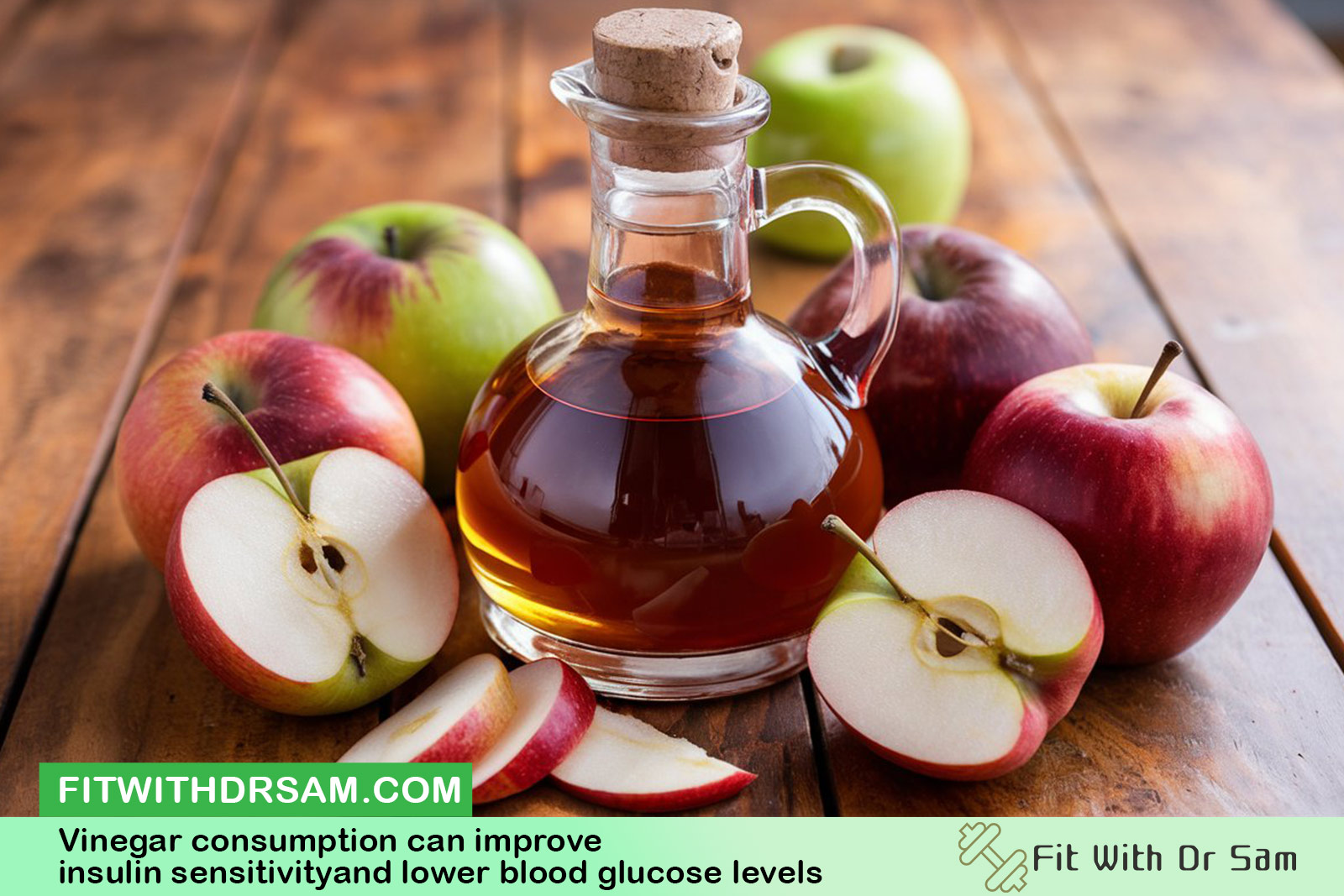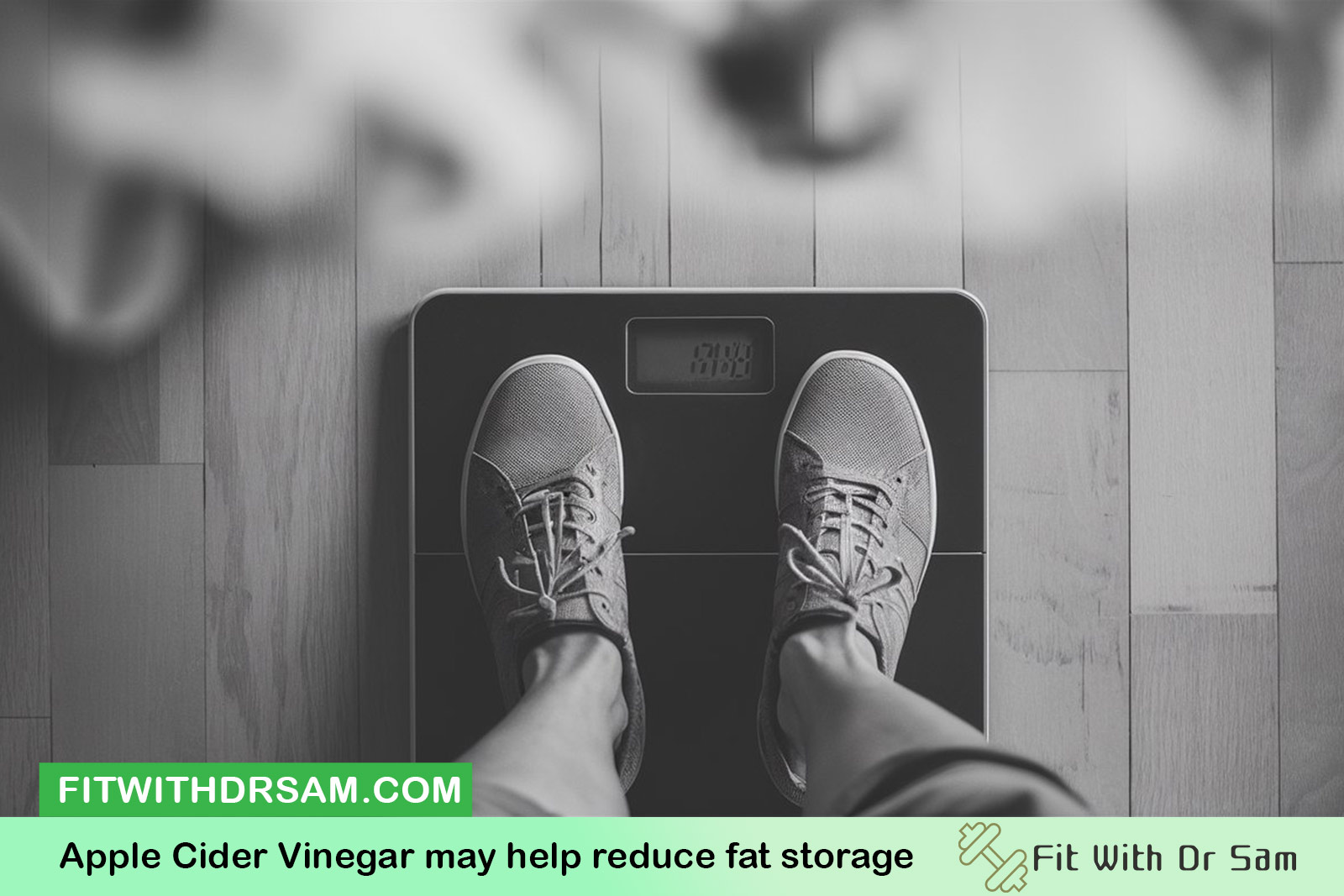Apple Cider Vinegar Bodybuilding Benefits, Weight Loss

Apple cider vinegar (ACV) is the fermented juice from crushed apples. It contains acetic acid and nutrients such as B vitamins and vitamin C. Apple cider vinegar is popularly used in salad dressings and cooking. But it’s also been used traditionally as medicine. Recently, looking at its Properties and benefits there’s been a lot of different tales about ACV’s phenomenal results in promoting overall health, drawing the attention of different people specially bodybuilding and workout enthusiasts, towards it. In this article we’re going to examine the role of Apple Cider Vinegar in Bodybuilding, Weight Loss and Detoxification and we are going to set apart truth from tale based on different studies and relevant evidence. So without further ado let’s get started.

How can Apple Cider Vinegar help me in bodybuilding?
Some resources might suggest adding Apple cider vinegar to your daily routine as a pre-workout or post-workout drink. But is there scientific evidence that doing so can provide any specific benefit?
Can Apple Cider Vinegar boost muscle growth in bodybuilding?
There is limited direct evidence linking ACV consumption to increased muscle growth. Muscle growth primarily depends on factors such as adequate protein intake, resistance training, and overall nutrition. While ACV contains small amounts of amino acids and nutrients like potassium, which are important for muscle function, there is no robust scientific evidence proving that ACV directly stimulates muscle growth.

However when it comes to muscle recovery, ACV may potentially influence muscle recovery through several mechanisms:
- Blood Sugar Regulation: ACV has been studied for its ability to improve insulin sensitivity and lower blood sugar levels after meals. Stable blood sugar levels can support recovery by promoting nutrient delivery to muscles. Based on a study published in the Journal of American diabetes association in 2004, it was found that vinegar (which includes ACV) consumption can improve insulin sensitivity and lower blood glucose levels after meals in individuals with insulin resistance or type 2 diabetes. This could potentially aid in muscle recovery indirectly by stabilizing energy levels and promoting nutrient delivery to muscles [1].
- Anti-inflammatory Properties: ACV contains polyphenols such as chlorogenic acid, which may have anti-inflammatory effects. Reduced inflammation can aid in faster recovery after exercise.
- Electrolyte Balance: ACV contains potassium, an electrolyte important for muscle function. Adequate electrolyte balance supports muscle recovery and function. Based on research published in the American Journal of Clinical Nutrition, electrolyte balance plays a critical role in muscle function and recovery [2]. Electrolytes like potassium and sodium are essential for maintaining cellular hydration, muscle contraction, and nerve transmission, all of which are vital during and after exercise. The study highlights that electrolyte-rich solutions (similar to those found in ACV) can help restore electrolyte balance and hydration status after exercise, potentially aiding in muscle recovery and reducing the risk of muscle cramps.

How can Apple cider vinegar help me lose weight?
A lot actually believe that Apple cider vinegar is a potion sent straight from heaven, aiding you to lose weight faster and easier. How far can we trust these statements?
- Appetite Suppression: Some studies suggest that ACV may help reduce appetite when consumed before meals, leading to lower calorie intake throughout the day. However you need to remember changing only a single part of our routine — such as drinking a shot of apple cider vinegar each evening — can’t help us shed excess pounds as effectively as broader efforts that include changing our overall diet and exercising more often [3].
Improved Insulin Sensitivity: ACV has been shown to improve insulin sensitivity, which could potentially help regulate blood sugar levels and reduce fat storage. When taken before a high carb meal, vinegar slows the rate of stomach emptying and prevents large blood sugar spikes. It also improves insulin sensitivity, which helps your body move more glucose out of the bloodstream and into your cells, thus lowering blood sugar levels. Generally, taking 4 teaspoons (tsp.), or 20 mL, of apple cider vinegar before meals has been shown to significantly reduce blood sugar levels after eating [4, 5, 6].

- Reduced Fat Storage: Animal studies indicate that acetic acid, the main component of ACV, may help reduce fat storage and improve fat metabolism. However, it’s effects aren’t proven to be that significant and this method could work best when combined with other lifestyle and diet changes.
Does Apple cider vinegar have any effects on detoxification?
Apple cider vinegar has recently been known for its potential benefits in detoxification, although the scientific evidence supporting this claim is limited and mixed:
- Liver Support: The liver is a crucial organ for detoxification in the body. According to a study published in pubMed acetic acid, a component of different types of vinegar (including apple cider vinegar), may support liver function by increasing detoxification enzymes. However, human studies are lacking or inconclusive so it is hard to draw a certain conclusion [7]. Also, you can read habits that damage your liver.
- Antioxidant Properties: ACV contains antioxidants like polyphenols, which can help neutralize harmful free radicals in the body. This anti oxidative activity may contribute to overall health and potentially aid in detoxification processes. In fact antioxidants can prevent or slow cell damage caused by free radicals, which are unstable molecules that the body produces as a reaction to environmental and other pressures. Free radicals are waste substances produced by cells Trusted Source as the body processes food and reacts to the environment. If the body cannot process and remove free radicals efficiently, oxidative stress can result. This can harm cells and body function. Free radicals are also known as reactive oxygen species. Antioxidants are said to help neutralize free radicals in our bodies, and this is thought to boost overall health [8, 9, 10].
Is it healthy to add ACV to my daily diet?
Adding apple cider vinegar (ACV) to your daily diet can potentially have health benefits, but it’s important to use it in moderation and in the right way to avoid any adverse effects.
What’s the best way to consume apple cider vinegar?
- Dilute ACV: ACV is highly acidic, so it’s crucial to dilute it before consuming. Mix 1-2 tablespoons of ACV in a large glass of water. This dilution helps protect your tooth enamel and esophagus from the acidity.
- Timing: It’s often recommended to consume ACV before meals. Some people find it helps with digestion and may aid in managing blood sugar levels when taken before meals. However, there’s no strict rule; you can also consume it at other times of the day. Just see what works best for you.
- Consider Use in Recipes: You can incorporate apple cider vinegar into your diet by using it as a salad dressing ingredient, mixing it into sauces, or even using it in marinades for meats.
- Be Mindful of Effects: ACV is known to interact with certain medications and may lower blood sugar levels or affect potassium levels in some individuals. If you have any medical conditions or concerns, it’s wise to consult with a healthcare professional before making it a regular part of your diet.

Conclusion
While adding Apple cider vinegar to your diet could provide several health benefits it is important to keep the correct modifications and the right routine in mind to avoid harming yourself and take advantage of its potential benefits to the fullest. Also, don’t forget that ACV is not a magical potion fallen out of heaven and you can’t expect a miracle just by adding a few tablespoons of it to your daily routine. The most important step in maintaining good health status, growing muscle and reaching your goals in bodybuilding is by keeping a healthy diet and lifestyle and actually hitting the gym.
References
- [1] https://diabetesjournals.org/care/article/27/1/281/26582/Vinegar-Improves-Insulin-Sensitivity-to-a-High
- [2] Shirreffs, Susan M., Lawrence E. Armstrong, and Samuel N. Cheuvront. “Fluid and electrolyte needs for preparation and recovery from training and competition.” Food, Nutrition and Sports Performance II (2004): 92-103.
- [3] Holzapfel, C. (2014). Weight Loss and Good Health with Apple Cider Vinegar. Healthy Living Publications.
- [4] Iman, Maryam, Seyed Adel Moallem, and Ahmad Barahoyee. “Effect of apple cider vinegar on blood glucose level in diabetic mice.” Pharmaceutical Sciences 20.4 (2014): 163-168.
- [5] Hlebowicz, J., Darwiche, G., Björgell, O., & Almér, L. O. (2007). Effect of apple cider vinegar on delayed gastric emptying in patients with type 1 diabetes mellitus: a pilot study. BMC gastroenterology, 7, 1-6.
- [6] https://pubmed.ncbi.nlm.nih.gov/31451249/
- [7] https://pubmed.ncbi.nlm.nih.gov/19661687/
- [8] https://ift.onlinelibrary.wiley.com/doi/full/10.1111/1750-3841.12434
- [9] https://www.ncbi.nlm.nih.gov/pmc/articles/PMC3249911/
- [10] Pham-Huy, Lien Ai, Hua He, and Chuong Pham-Huy. “Free radicals, antioxidants in disease and health.” International journal of biomedical science: IJBS 4.2 (2008): 89.





